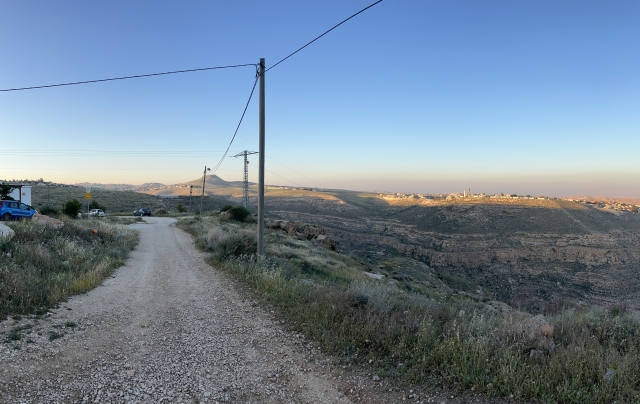Surprising data on the Israeli public's perception regarding Israeli communities in Judea and Samaria emerge from a survey by the Israel Defense and Security Forum (IDSF), published on the occasion of the Israel Security Conference, which will be held on Tuesday, May 9, in Jerusalem.
The survey, which was conducted among a representative sample of 1,191 citizens, revealed that 70% of the Jewish public feel a historical connection to Judea and Samaria, 63% an emotional connection, and 48% a religious connection. In contrast, among Israeli Arabs, only 37% feel a historical connection to the disputed area while 33% and 32%, respectively, feel a historical and religious affinity.
Meanwhile, 90% of the right-wing voters answered that they have a historical affinity towards Judea and Samaria, and 46% of the center voters answered the same. Among the supporters of the left-leaning parties, 27% of those sampled agreed that they have a historical affiliation with the disputed region.
Poll: #Israelis oppose withdrawal from #Judea and #Samaria for peace.https://t.co/wfdbPOJVl0 pic.twitter.com/wcGRdPQmYC
— Eli Dror (@edrormba) April 2, 2017
The security conference will be held in the presence of Prime Minister Benjamin Netanyahu, Defense Minister Yoav Galant, Police Commissioner Yaakov Shabtai, many ministers, and other Knesset members. The conference will host about 300 senior officials from the IDSF, who are mostly former military leaders and heads of different organizations, however, the event will be open to the general public. The participants in the conference are expected to discuss the Iranian campaign, the Abraham Accords, relations with the Palestinians, the day after Abu Mazen, governance challenges, personal security, and more.
In the shadow of calls for the boycott of products from Judea and Samaria, the survey found that 4% of Jews completely avoid products produced there, and in contrast, 71% have no problem purchasing such products. 37% said they prefer to purchase products produced in the region. As far as living in Judea and Samaria, 47% of the Jewish respondents answered that they would consider moving there. However, 8% of them conditioned it by moving to communities on the Israeli side of the separation fence, and 12% conditioned it by moving to settlements or large cities.
הם יהיו שם! pic.twitter.com/Se5dopSuBi
— הביטחוניסטים (@habithonistim) May 3, 2023
"The survey points to two key findings," says the founder and chairman of the IDSF movement, Brigadier General (Res.) Amir Avivi. "First, the majority of the Israeli public today has a special and deep connection to Judea and Samaria. Secondly, today it is impossible to separate the Israeli public from the Jewish people because there is a deep fabric between them economically, geographically, and socially. This is true for both the Jewish public and the Israeli Arabs.”


